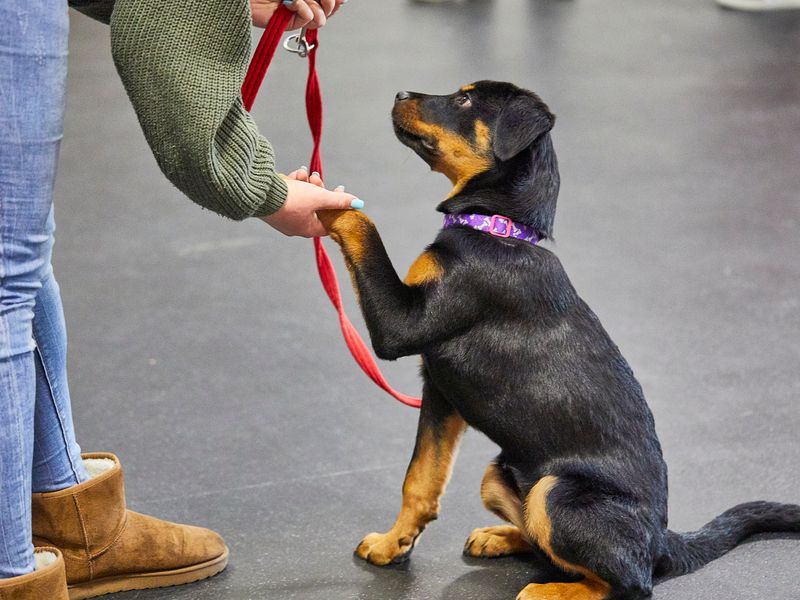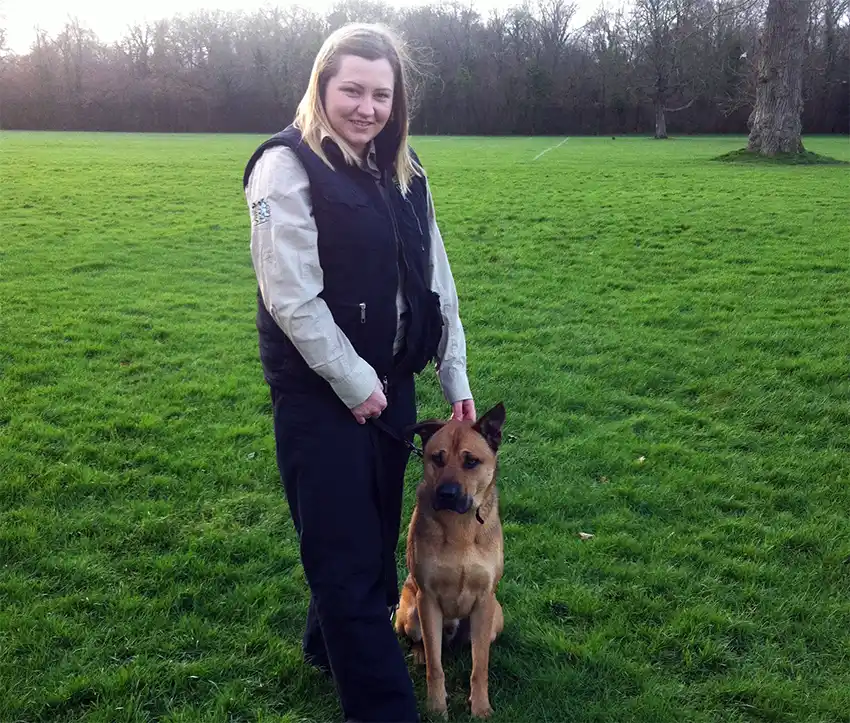Dog Training Strategies to Solve Common Behavior Problems
Dog Training Strategies to Solve Common Behavior Problems
Blog Article
The Ultimate Overview to Canine Training: Change Your Animal's Actions
Effective pet dog training is essential for cultivating a harmonious relationship between pets and their owners. This guide not just aims to furnish you with the needed devices to change your pet's actions yet also invites you to check out exactly how these foundational concepts can lead to a deeper connection with your animal.
Comprehending Canine Behavior
Comprehending dog habits is vital for effective training and an unified connection in between canines and their proprietors. A canine's actions is influenced by a mix of genetics, setting, and experiences. Dog training. Recognizing these variables allows proprietors to customize their training approaches to meet the specific needs of their family pets
Dogs interact mainly via body language, vocalizations, and face expressions. A wagging tail can suggest exhilaration or happiness, while a put tail might signal fear or submission. Observing these hints allows owners to react suitably, reinforcing positive actions and dealing with unfavorable ones properly.
Furthermore, comprehending the social framework of pets can give understandings right into their actions. Pet dogs are pack animals, and they flourish in a structured environment. Developing clear limits and constant rules can avoid confusion and advertise a sense of safety and security.
Furthermore, recognizing the all-natural instincts of pets, such as need to dig or chase, is critical. These reactions can be redirected via proper outlets, such as play or workout. By thoroughly comprehending these behavior elements, proprietors can promote a positive training experience, ultimately causing a well-adjusted and obedient canine companion.
Important Training Strategies
Efficient pet training counts on a variety of crucial methods that can significantly improve the discovering process for both the dog and the owner. One basic strategy is positive reinforcement, which entails rewarding preferable habits with deals with, appreciation, or playtime. This technique urges canines to duplicate the actions that lead to favorable outcomes, promoting a relying on relationship between the pet dog and owner.
One more secret strategy is uniformity in assumptions and commands. Making use of the very same spoken cues and hand signals assists the pet recognize what is required, minimizing complication and advertising quicker learning. Furthermore, establishing clear limits and policies is crucial for efficient communication.
Socialization is likewise a necessary part of training. Subjecting pet dogs to various atmospheres, people, and various other pets assists them establish suitable social abilities and reduces anxiety in strange scenarios.
Last but not least, perseverance and timing are vital. Educating sessions ought to be regular but brief, ensuring that the pet dog continues to be engaged and receptive. By employing these crucial techniques, proprietors can develop a favorable and organized training experience that promotes excellent habits and enhances the bond with their canine companions.
Developing a Training Schedule
Just how can a well-structured training routine boost a pet dog's discovering experience? A training timetable offers uniformity, guaranteeing that dogs get normal, concentrated direction. This predictability helps pet dogs comprehend what is expected of them, strengthening their learning and permitting better retention of commands and habits.
When producing a training timetable, it is necessary to consider the dog's age, type, and individual character. Youthful puppies might gain from much shorter, much more regular sessions, while grown-up pet dogs might prosper with longer, much less frequent training periods. Including a range of tasks can additionally keep the sessions engaging, avoiding dullness and advertising enthusiasm for discovering.
In addition, scheduling training sessions at specific times of the day can help solidify a routine. Combining training with day-to-day walks or play can develop a favorable organization with understanding. It is likewise essential to include time for reinforcement, such as treats or praise, to reward desired behaviors quickly.
Lastly, flexibility is essential. While uniformity is essential, being adaptable to the canine's mood or energy degree can enhance their learning experience. A well-crafted training schedule eventually lays the foundation for efficient communication and a stronger bond in between the canine and owner.
Common Training Obstacles
Regardless of having a well-structured training routine, dog owners typically come across different difficulties during the training procedure. One usual problem is disparity in commands and signs. When several relative utilize various terms or tones, a pet dog may come to be baffled, hindering its capability to find out effectively.
An additional regular challenge is distraction. Dog training. Pets are normally curious animals, and external stimuli such as various other animals, sounds, or people can divert their attention throughout training sessions. This calls for proprietors to produce a controlled setting or slowly present diversions to reinforce focus
Additionally, differing energy levels address can influence training end results. High-energy pet dogs might have a hard time to calm down and concentrate, while much more easygoing breeds may require additional motivation to engage. Tailoring the training strategy to fit the individual pet dog's temperament is crucial for success.

Building a Solid Bond
A strong bond between a pet and its owner is essential for effective training and general well-being. Dog training. This partnership cultivates trust fund, which is vital for effective interaction during the training process. When a canine really feels safe and connected to its owner, it is more probable to respond favorably to signs and commands
To construct this bond, consistency is crucial. Establishing a routine that consists of normal feeding, exercise, and training sessions helps develop a sense of security. Furthermore, positive reinforcement techniques, such as deals with, praise, and play, strengthen wanted actions while strengthening the psychological link.
Socializing is another crucial aspect of bond-building. Revealing your dog to various environments, individuals, and various other animals assists them feel extra confident and comfortable, improving the bond with their proprietor. Participating in tasks with each other, such as walking, playing bring, or taking part in obedience training, advertises synergy and common satisfaction.
Final Thought

Understanding pet actions is crucial for effective training and check over here an unified connection in between pet dogs and their owners.Reliable pet training depends on a variety of vital techniques that can dramatically improve the knowing process for both the canine and the proprietor.Despite having a well-structured training schedule, dog owners usually experience different obstacles during the training procedure.In verdict, reliable canine training counts on an extensive understanding of canine behavior, the application of necessary strategies, and the facility of a structured training timetable. By highlighting positive support and consistency, canine owners can considerably enhance their animals' behavior, eventually making certain an unified connection and advertising the wellness of both the pet and its atmosphere.
Report this page